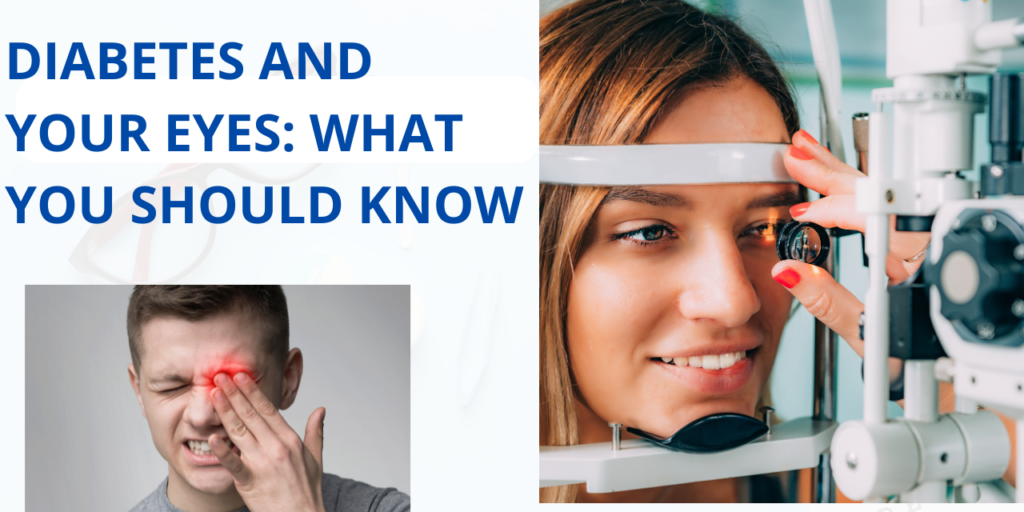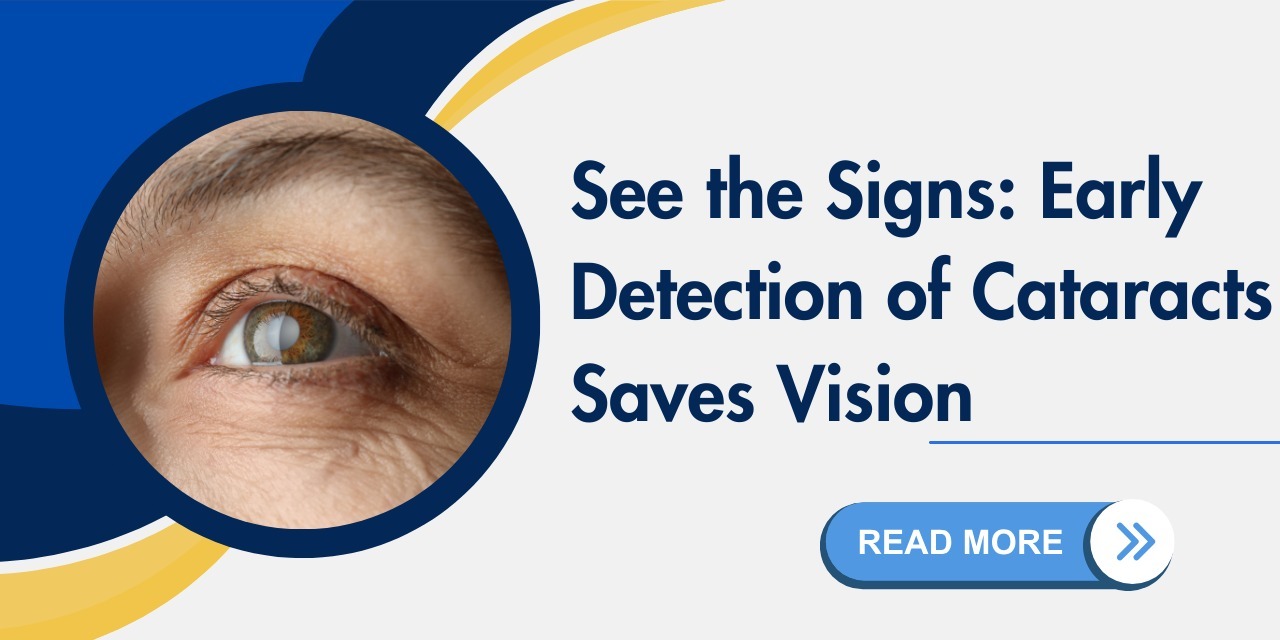
Diabetes is a widespread health concern globally, affecting millions of individuals every year. While the impact of diabetes on various organs is well-documented, its effects on eye health are often underestimated. The intricate connection between diabetes and eye health demands attention and awareness to prevent serious complications. In this article, we delve into the relationship between diabetes and eye health, shedding light on crucial information that individuals with diabetes should know.
Understanding Diabetic Eye Diseases:
Diabetic eye diseases encompass a range of conditions that can affect the eyes of individuals with diabetes. These conditions include diabetic retinopathy, diabetic macular edema, cataracts, and glaucoma. Among these, diabetic retinopathy is perhaps the most well-known and potentially severe complication.
Diabetic Retinopathy:
Diabetic retinopathy is a condition where high blood sugar levels damage the blood vessels in the retina, the light-sensitive tissue at the back of the eye. In the early stages, diabetic retinopathy may not exhibit any noticeable symptoms. However, as the disease progresses, symptoms such as blurred vision, floaters, impaired color vision, and even complete vision loss can occur.
Diabetic Macular Edema:
Diabetic macular edema (DME) is a complication of diabetic retinopathy. It occurs when fluid leaks into the macula, the central part of the retina responsible for sharp, central vision. DME can result in blurred or distorted vision and, if left untreated, may lead to permanent vision loss.
Cataracts:
Individuals with diabetes are also at a higher risk of developing cataracts, a clouding of the eye’s natural lens. While cataracts are a common age-related condition, people with diabetes tend to develop them at an earlier age and may experience faster progression.
Glaucoma:
Glaucoma is another eye condition that individuals with diabetes should be aware of. Although the exact relationship between diabetes and glaucoma is not fully understood, studies suggest that diabetes may increase the risk of developing glaucoma. Glaucoma is characterized by damage to the optic nerve, often caused by elevated intraocular pressure. If left untreated, glaucoma can lead to irreversible vision loss.
The Importance of Regular Eye Exams:
Regular eye examinations are essential for individuals with diabetes to detect and manage any diabetic eye diseases promptly. Comprehensive eye exams can detect early signs of diabetic retinopathy, allowing for timely intervention to prevent vision loss. Additionally, eye exams can help monitor the progression of diabetic eye diseases and guide appropriate treatment strategies.
Treatment Options:
Treatment for diabetic eye diseases varies depending on the specific condition and its severity. In the case of diabetic retinopathy and DME, treatment options may include laser therapy, intravitreal injections of anti-VEGF medications, or surgical procedures such as vitrectomy. Cataract surgery may be necessary if cataracts significantly impair vision. Similarly, glaucoma treatment aims to lower intraocular pressure through medications, laser therapy, or surgery.
Glaucoma Treatment in Kharar:
For individuals in Kharar seeking specialized care for glaucoma, Tricity Eye Hospital stands out as a premier destination. Led by Dr. Rohit P Gupta, a renowned glaucoma specialist in Kharar, Tricity Eye Hospital offers comprehensive glaucoma management services. Dr. Rohit P Gupta’s expertise combined with state-of-the-art facilities makes Tricity Eye Hospital best eye hospital in Kharar for glaucoma treatment.
Preventive Measures:
While proper management of diabetes is crucial in preventing diabetic eye diseases, there are additional preventive measures individuals can take to protect their vision. These include maintaining healthy blood sugar levels, controlling blood pressure and cholesterol, adopting a healthy lifestyle with regular exercise and a balanced diet, avoiding smoking, and attending regular eye check-ups.
Conclusion:
In conclusion, diabetes poses significant risks to eye health, with diabetic eye diseases being a leading cause of vision impairment and blindness worldwide. Understanding the connection between diabetes and eye health is essential for early detection and effective management of diabetic eye diseases. By prioritizing regular eye exams, adopting preventive measures, and seeking timely treatment from qualified specialists such as Dr. Rohit P Gupta at Tricity Eye Hospital in Kharar, individuals with diabetes can safeguard their vision and maintain optimal eye health.
It is advisable for individuals to seek guidance from eye care professionals to monitor and address any potential issues related to smoking and eye health. For expert advice and comprehensive eye care, individuals can consult Dr. Rohit P Gupta at Tricity Eye Hospital. With over 8 years of experience in the field of ophthalmology, Dr. Gupta is committed to promoting eye health and providing personalized care.










